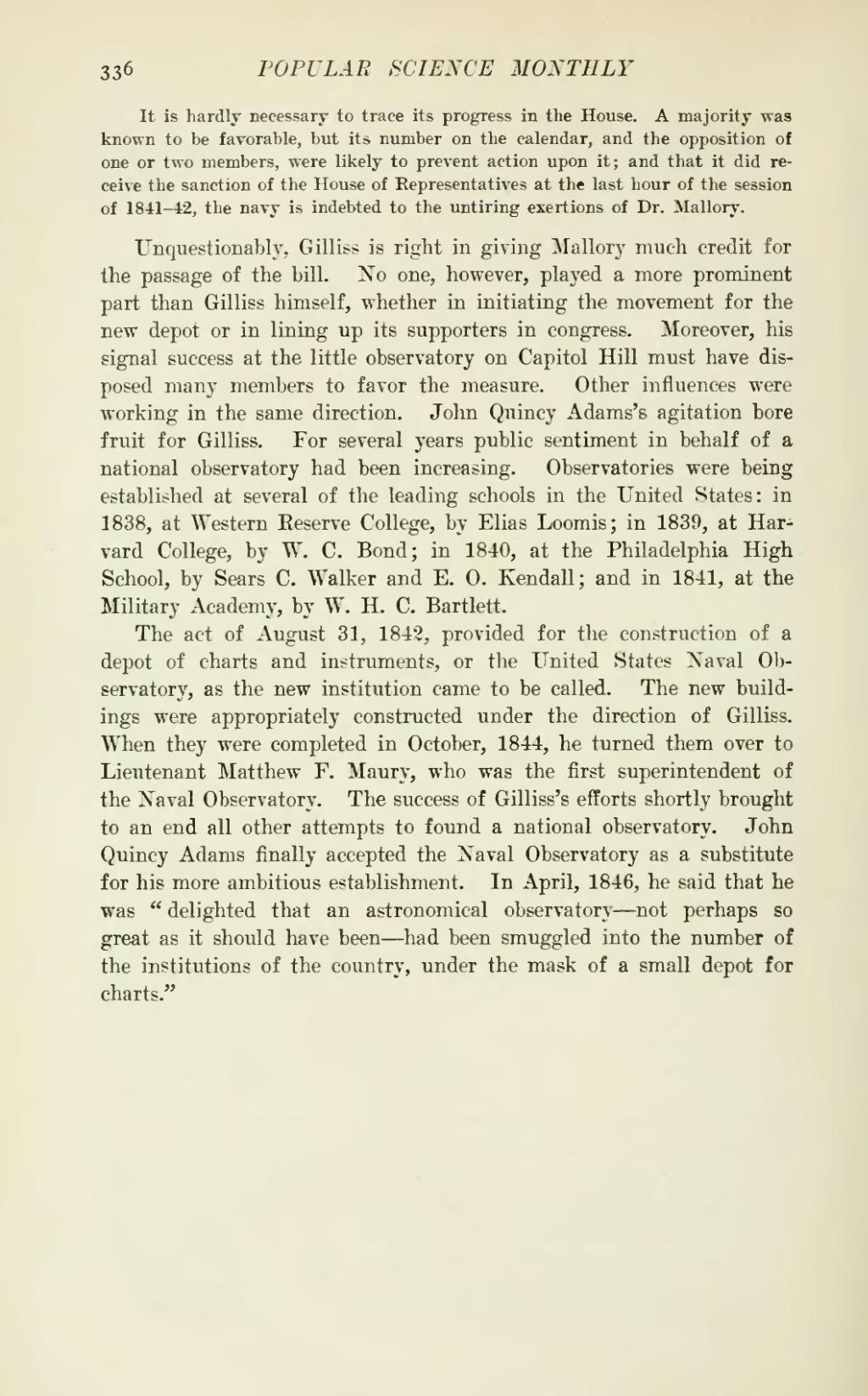Unquestionably, Gilliss is right in giving in giving Mallory much credit for the passage of the bill. No one, however, played a more prominent part than Gilliss himself, whether in initiating the movement for the new depot or in lining up its supporters in congress. Moreover, his signal success at the little observatory on Capitol Hill must have disposed many members to favor the measure. Other influences were working in the same direction, John Quincy Adams's agitation bore fruit for Gilliss. For several years public sentiment in behalf of a national observatory had been increasing. Observatories were being established at several of the leading schools in the United States: in 1838, at Western Reserve College, by Elias Loomis; in 1839, at Harvard College, by W. C. Bond; in 1840, at the Philadelphia High School, by Sears C. Walker and E. O. Kendall; and in 1841, at the Military Academy, by W. H. C. Bartlett.
The act of August 31, 1842, provided for the construction of a depot of charts and instruments, or the United States Naval Observatory, as the new institution came to be called. The new buildings were appropriately constructed under the direction of Gilliss. When they were completed in October, 1844, he turned them over to Lieutenant Matthew F. Maury, who was the first superintendent of the Naval Observatory. The success of Gilliss's efforts shortly brought to an end all other attempts to found a national observatory. John Quincy Adams finally accepted the Naval Observatory as a substitute for his more ambitious establishment. In April, 1846, he said that he was "delighted that an astronomical observatory—not perhaps so great as it should have been—had been smuggled into the number of the institutions of the country, under the mask of a small depot for charts."

